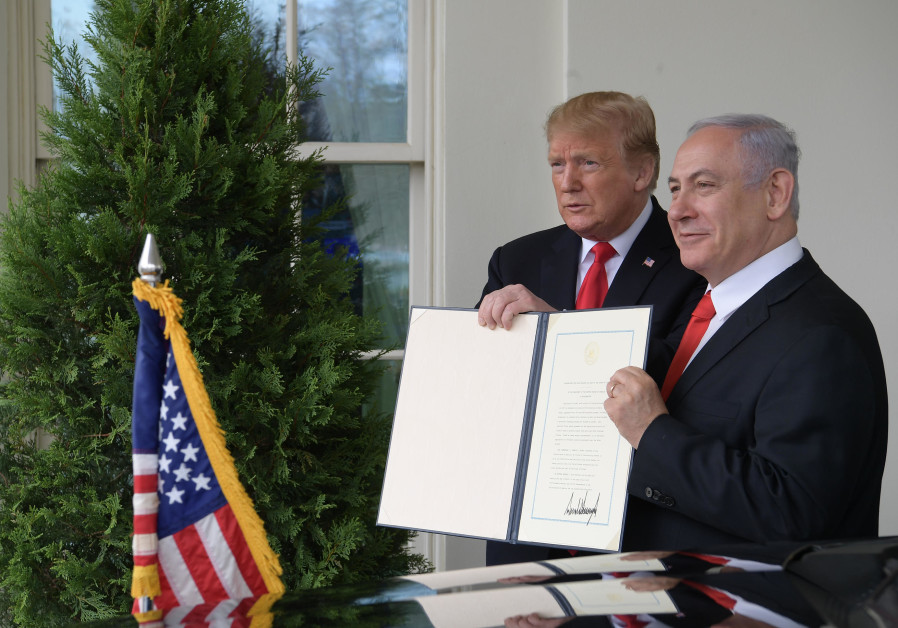Trump’s recognition of Golan will help Netanyahu in the polls – new survey

Prime Minister Benjamin Netanyahu and US President Donald Trump hold up the signed document acknowledging Israeli sovereignty over the Golan Heights, on March 25, 2019. (photo credit: AMOS BEN-GERSHOM/GPO)
US President Donald Trump’s decision to officially recognize Israel’s sovereignty over the Golan Heights strengthens Prime Minister Benjamin Netanyahu’s standing in the upcoming election, according to a survey published Thursday by the Israel Democracy Institute.
The poll found that 74% of the Right, 54% of the Center and 59% of the Left felt this announcement would serve the prime minister well.
Respondents to this March 2019 poll also found that a majority of Jewish Israelis felt that Trump’s announcement would be helpful to Israel’s interests. In contrast, Israeli-Arabs were not so sure. Most said they did not know, but those who did have an opinion (28%) said that it would be harmful.
For decades, the majority of Israelis have opposed returning the Golan Heights to Syria. A “Survey on the Public’s Problems,” published in 1979, found that 80% of Jewish Israelis were not prepared to return any part of the Golan Heights, even for peace with Syria.

Israel and Syria were negotiating peace agreements between 1994 and 1996, and then again in December 1999 and January 2000. The Israel Democracy Institute and Tel Aviv University’s Peace Index surveyed Jewish Israelis and Israeli-Arabs during those periods to see if they would be willing to relinquish any part of the Golan Heights for diplomatic relations, demilitarization and international security guarantees.
In 1994, nearly half (43%-45%) of Jewish Israelis opposed returning the Golan Heights. In January 2000, more than half (54%) of Jewish Israelis were opposed to exchanging the Heights for a peace treaty.
By 2012, when once again negotiations resumed, Israelis became even less willing to give up this land. At the start of the Syrian civil war in December 2012, an overwhelming three-fourths (77%) of Israelis said it would not be possible for Israel to return the Golan Heights and the vast majority (84%) of Jewish Israelis were opposed to returning it. In contrast, in 2012, some 61% of Israeli-Arabs thought the Golan Heights should be returned.
Join Jerusalem Post Premium Plus now for just $5 and upgrade your experience with an ads-free website and exclusive content. Click here>>






Comments are closed.